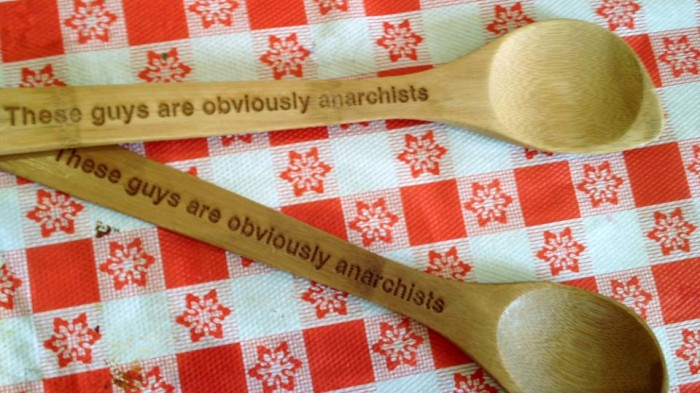Imagine to limit the pressure to work to the minimum! Peer production combined with an unconditional basic income offers such a possibility. I will explore a scenario of reorganizing production of services and goods related to subsistence. The scenario will inform the debates on a universal basic income. Scenarios taking into account the personal perspective can help to decolonize the public discourse by freeing citizen's imagination.
Besides, I will participate in BIEN conference in June and present my paper: “How Basic Income Will Transform Active Citizenship? A Scenario of Political Participation beyond Delegation.”
Peer production organization has mainly developed in digital content production such as Wikipedia and in the development of software products. It is debated whether this type of production organization can spread to other areas than e-governance, journalism, gaming, Internet and digital production.
Since these forms of organizing production outside of the digital world are very rare and the empirical studies on the work within peer production in physical world are very limited, one needs to develop an inductive study.
The main aim of the project is to develop a grounded theory on the operating and the consequences of peer production in physical world by applying inductive logic of inquiry and open-ended interviews. The literature on peer production and on organizations having similar principles in place can help formulating first hypotheses for empirical examination.
This will help to anticipate the results of developing this logic in producing services and assess whether an alternative way of organizing subsistence services can meet the structural challenges of our times. These challenges include the outflow of production from developed countries and increased productivity causing underemployment and the precarious employment, the growing proportion of population which is not able to work in full time hierarchic employment system due to aging or other limitations, and the democratic deficit inherent in the current forms of organizing services provision.
I believe that we need to create alternative scenarios to the capitalist hegemony and its “relentless campaign against the human imagination” (Graeber 2013). We know and we feel what does not work within the current capitalist system. But what a different system would look like in its very practical and daily dimension. It is difficult to think outside the box if you are emotionally bound to the current system through the employment norm and the fear. I will try.
The research stay and conference in Montreal are part of my broader project. I hope to write a book but even if I don't manage to complete a book I will publish the completed parts as articles on other sites or on a blog anyway.
In this part of the project, I will examine peer production of food services. Three peer food services collectives (People’s Potato at the Concordia University, Midnight Kitchen at the McGill University, and Ras-le-Bol at the UQAM) are present in Montréal. The biggest one is People's Potato. These organizations meet the criteria of peer production in physical world:
1) Self-selected spontaneous contribution of participants: The volunteers can join collectives spontaneously and are assigned a task. For instance, during my explorative study in March 2013, I came to help at the People’s Potato without registering before.
2) Creation of use value rather than exchange or market value: Using services is not conditioned by the involvement as a volunteer. The production is financed by fee levies but the meals are distributed for free and broadly accessible (the largest collective produces 400 meals a weekday). One does not have to be a member of a respective university to receive a meal. This feature makes the cases interesting as they do not contain the clear group boundaries to determine who uses a resource or service, which is contrary to the factors facilitating the emergence of self-organizing.
3) Non-delegation and distributed coordination: The collectives are workers’ cooperatives with no hierarchy. The Annual General Meetings are accessible to the stakeholders and the public. The work of volunteers is coordinated by the employees of the collectives.
4) Production of material services and quality requirements: The collectives produce cooked meals (university food services). Hygiene and safety are inspected by public authorities. Further information on these organizations can be found in my World Future Review article. In the study of food services collectives, my units of analysis are the collectives as organizations and the individuals involved in these initiatives in different ways. I will gather data through interviews and observation.
Time plan:
1) BIEN conference participation and paper presentation in June
2) July and August: research on peer production, the plan is still not precise. I will apply to Acorn community in Virginia for a three-week stay. it depends whether they will accept me and whether I will be able to cross the Canadian-US border. If I stay in Montreal, I can conduct research on urban agriculture (there are some projects following peer production logic) and the restaurant Robin du Bois. The latter one operates mainly with the help of volunteers in its tasks and sharing profits with social projects.
3) During September and the first half of October: I will conduct research on university food collectives described above.
I am an experienced researcher and I have already started doing research on this topic.
I have published the following articles within this research agenda:
-
Gajewska, Katarzyna (2014): Peer Production and Prosumerism as a Model for the Future Organization of General Interest Services Provision in Developed Countries Examples of Food Services Collectives. World Future Review 6(1): 29-39. http://wfr.sagepub.com/content/6/1/29.abstract?rss=1 , Send me a message if you would like to receive a pdf!
-
Gajewska, Katarzyna (2014): Technological Unemployment but Still a Lot of Work: Towards Prosumerist Services of General Interest, Journal of Evolution and Technology 24(1): 104-112.
-
Gajewska, Kasia (25 July 2013): Direct Democracy in Montréal: What Can We Learn From the Maple Spring. Occupy.com: http://www.occupy.com/article/direct-democracy-montr%C3%A9al-what-we-can-learn-maple-spring















